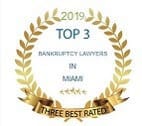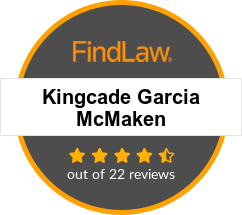Florida Supreme Court Case to Impact Thousands of Foreclosure Cases
When a Florida man bought his home, half of a duplex, in 2006, little did he know that by 2012 this purchase would send him through foreclosure and into a court battle that could dramatically change the way foreclosure lawsuits are handled in Florida.
The man, a construction worker, bought his home near the peak of the United States housing boom for just over $200,000. He put 20 percent down and financed the rest through Bank of America.
When the economic downturn hit the country, the man struggled to find work and began missing his monthly mortgage payments, which led Bank of New York Mellon, the trustee for the security owning the mortgage, to file a lawsuit to foreclose on the mortgage.
However, the man’s attorney discovered a problem with the legal documentation relied upon by the bank to foreclose on the home, the mortgage assignment was robo-signed; in other words, the mortgage assignment was fraudulent.
Robo-Signing Scandal
During the depths of the economic downturn that gripped the United States, many people found themselves out of work and struggling to make ends meet, and subsequently began missing mortgage payments. Lenders began foreclosing when the missed payments began piling up, but to keep up with all of the foreclosures to be filed, much of the work to get the paper work in order was outsourced to law firms and other companies specializing in helping with foreclosures. Many of these firms and companies, however, hired people to sign foreclosure affidavits without ever reviewing documentation, and in many instances signatures were forged, among many other shady practices.
Documentation Problems
When the issue with the assignment of the man’s mortgage was brought to Bank of New York Mellon’s attention, the lender voluntarily dismissed the case and re-filed the foreclosure with corrected documentation.
Georgetown professor Adam Levitin told Reuters News that voluntarily dismissing and then re-filing the lawsuit after correcting the paperwork is a common strategy used by lenders in robo-signing cases. Typically, if the borrower continues to fight the lawsuit, the lender will simply try to settle the case to make it go away.
The man continued to fight the lender’s use of the fraudulent document after the lender re-filed the foreclosure lawsuit. Ultimately the lender reached a settlement. However, the issue of voluntarily dismissing foreclosure lawsuits containing fraudulent documents and re-filing was of such importance that the Florida Supreme Court took this case and heard arguments in May 2012; a decision should come in the late fall or winter.
Impact of the Case
Because the man reached a settlement with the lender the Florida Supreme Court’s decision will not change his situation, but the impact of the decision will be felt throughout Florida; a state with one of the highest number of foreclosure lawsuits voluntarily dismissed. Using statistics from the Office of the State Courts Administrator in Florida, Reuters News reports that over 104,000 foreclosure lawsuits were voluntarily dismissed in the state through early July 2011.
But the question is: how will the decision, either way, effect Florida foreclosure lawsuits?
The main issue before the Florida Supreme Court in this case is if trial courts can review the voluntary dismissal of foreclosure lawsuits that were dismissed because of fraudulent documents and then overturn them. If the Florida Supreme Court rules in the homeowner’s favor, borrowers who will be able to penalize lenders for using fraudulent documents, making the mortgages unenforceable.
However, as an article in the Palm Beach Post notes, a ruling that would allow trial courts to overturn voluntary dismissals would go beyond just affecting lenders that used robo-signing firms or otherwise used fraudulent methods to file foreclosure lawsuits and also impact lenders that make honest mistakes.
In a brief submitted in this case, the Mortgage Bankers Association and the Florida Bankers Association stated that lenders, because of the “large numbers of defaulted loans in their portfolios,” “no doubt will make clerical errors, lose promissory notes, or discover other deficiencies in their foreclosure complaints that mandate correction in the interest of fairness.”
In deciding this case, the Florida Supreme Court is walking a fine line of protecting borrowers from the immoral and fraudulent actions of some lenders and allowing lenders who make honest mistakes the opportunity to correct mistakes made.
People facing foreclosure have many options for fighting back, including filing for bankruptcy. If you are facing foreclosure in Florida, speak with an experienced bankruptcy attorney about all of your legal options.
















